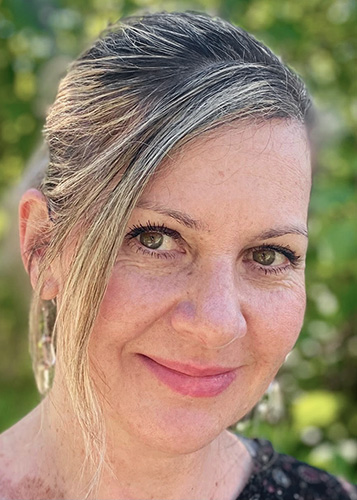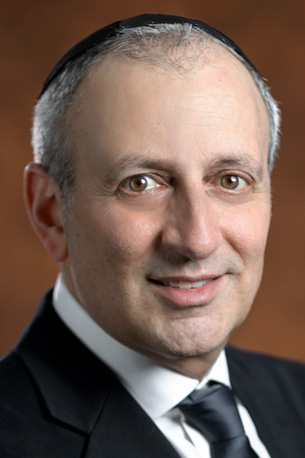

 Under ICANN's ICP-2 framework, RIR emergency operations extend beyond technical redundancy to encompass legal relocation, policy divergence and geopolitical risk, exposing tensions between operational resilience and national sovereignty in safeguarding global internet governance.
Under ICANN's ICP-2 framework, RIR emergency operations extend beyond technical redundancy to encompass legal relocation, policy divergence and geopolitical risk, exposing tensions between operational resilience and national sovereignty in safeguarding global internet governance.
 Low Earth Orbit satellite networks are dismantling traditional IP address allocation models. As signals defy borders, Regional Internet Registries face challenges in geolocation accuracy, routing security, and the definition of digital territory itself.
Low Earth Orbit satellite networks are dismantling traditional IP address allocation models. As signals defy borders, Regional Internet Registries face challenges in geolocation accuracy, routing security, and the definition of digital territory itself.
 A revised governance document for Regional Internet Registries aims to replace outdated policy, enhancing transparency, continuity, and oversight in managing IP resources while preparing for future disruptions across the global Internet infrastructure.
A revised governance document for Regional Internet Registries aims to replace outdated policy, enhancing transparency, continuity, and oversight in managing IP resources while preparing for future disruptions across the global Internet infrastructure.
 The Internet has evolved from a scarcity-driven system into one defined by abundance, reshaping infrastructure, governance, and economic models while challenging long-held assumptions about addressing, network roles, and the future of protocol design.
The Internet has evolved from a scarcity-driven system into one defined by abundance, reshaping infrastructure, governance, and economic models while challenging long-held assumptions about addressing, network roles, and the future of protocol design.
 Diverging policies and fee structures among Regional Internet Registries are reshaping the global IPv4 market. RIPE has emerged as a liquidity hub, while others leak resources, risking long-term instability and financial fragility.
Diverging policies and fee structures among Regional Internet Registries are reshaping the global IPv4 market. RIPE has emerged as a liquidity hub, while others leak resources, risking long-term instability and financial fragility.
 Starlink's global reach is distorting conventional IP geolocation, blurring national boundaries and skewing internet usage data. As satellites replace cables, measuring users' precise locations has become an increasingly uncertain and politically charged task.
Starlink's global reach is distorting conventional IP geolocation, blurring national boundaries and skewing internet usage data. As satellites replace cables, measuring users' precise locations has become an increasingly uncertain and politically charged task.
 AFRINIC-The Regional Internet Registry for Africa has finally successfully conducted its 2025 Board of Directors Elections! The elections were held from September 10 to 12, 2025. This fresh leadership marks the beginning of a new era after years of turbulence and uncertainty for the organization.
AFRINIC-The Regional Internet Registry for Africa has finally successfully conducted its 2025 Board of Directors Elections! The elections were held from September 10 to 12, 2025. This fresh leadership marks the beginning of a new era after years of turbulence and uncertainty for the organization.
 In October 2023, the Number Resource Organization initiated a process to undertake a significant update to Internet Coordination Policy 2 (ICP-2); the policy which specifies the criteria for establishing new Regional Internet Registries (RIRs). The Address Supporting Organization Address Council (ASO AC) has been tasked with managing the revision process, emphasizing community engagement and transparency.
In October 2023, the Number Resource Organization initiated a process to undertake a significant update to Internet Coordination Policy 2 (ICP-2); the policy which specifies the criteria for establishing new Regional Internet Registries (RIRs). The Address Supporting Organization Address Council (ASO AC) has been tasked with managing the revision process, emphasizing community engagement and transparency.
 On 21 August 2023, ICANN org. made its position in relation to the current state of the UN's Global Digital Compact (GDC) clear in a blog post by Sally Costerton (ICANN CEO), John Curran (ARIN), and Paul Wilson (APNIC), entitled "The Global Digital Compact: A Top-down Attempt to Minimize the Role of The Technical Community." The publication strongly criticizes the GDC's attempt at folding the technical community into the civil society umbrella under a "tripartite" approach also involving the private sector and governments, as proposed by the Secretary-General's Envoy on Technology, Amandeep Gill.
On 21 August 2023, ICANN org. made its position in relation to the current state of the UN's Global Digital Compact (GDC) clear in a blog post by Sally Costerton (ICANN CEO), John Curran (ARIN), and Paul Wilson (APNIC), entitled "The Global Digital Compact: A Top-down Attempt to Minimize the Role of The Technical Community." The publication strongly criticizes the GDC's attempt at folding the technical community into the civil society umbrella under a "tripartite" approach also involving the private sector and governments, as proposed by the Secretary-General's Envoy on Technology, Amandeep Gill.
 The Registration Operations Workshop (ROW) was conceived as an informal industry conference that would provide a forum for discussion of the technical aspects of registration operations in the domain name system and IP addressing. The ROW series is being co-sponsored by Verisign and ICANN and organized by Cofomo, and we are looking forward to an engaging set of talks, panel discussions, and conversations with individuals involved with the operation of domain name registrations systems.
The Registration Operations Workshop (ROW) was conceived as an informal industry conference that would provide a forum for discussion of the technical aspects of registration operations in the domain name system and IP addressing. The ROW series is being co-sponsored by Verisign and ICANN and organized by Cofomo, and we are looking forward to an engaging set of talks, panel discussions, and conversations with individuals involved with the operation of domain name registrations systems.
 The Registration Operations Workshop (ROW) was conceived as an informal industry conference that would provide a forum for discussion of the technical aspects of registration operations in the domain name system and IP addressing. The 11th ROW will be held online on Tuesday, June 21st, 2022 at 13h00 -- 16h00 UTC. The discussion topics will be...
The Registration Operations Workshop (ROW) was conceived as an informal industry conference that would provide a forum for discussion of the technical aspects of registration operations in the domain name system and IP addressing. The 11th ROW will be held online on Tuesday, June 21st, 2022 at 13h00 -- 16h00 UTC. The discussion topics will be...
 The Registration Operations Workshop (ROW) was conceived as an informal industry conference that would provide a forum for discussion of the technical aspects of registration operations in the domain name system and IP addressing. The 10th ROW will be held online on Tuesday, June 8th, 2021 at 13h00-17h00 UTC. Click to learn more about the discussion topics and registration details.
The Registration Operations Workshop (ROW) was conceived as an informal industry conference that would provide a forum for discussion of the technical aspects of registration operations in the domain name system and IP addressing. The 10th ROW will be held online on Tuesday, June 8th, 2021 at 13h00-17h00 UTC. Click to learn more about the discussion topics and registration details.
 In a publication released on October 2, 2020, RIPE NCC reported its first seizure of IPv4 registration rights pursuant to a Dutch court order. Pursuant to the order, RIPE NCC effectuated a transfer of the IP Addresses from the liquidating debtor to its creditor. Although these IP Addresses could not be owned, they were apparently not legacy. Thus, they conferred no "property rights" - the registration rights were deemed an enforceable right that has value and were to be utilized towards satisfaction of a judgment.
In a publication released on October 2, 2020, RIPE NCC reported its first seizure of IPv4 registration rights pursuant to a Dutch court order. Pursuant to the order, RIPE NCC effectuated a transfer of the IP Addresses from the liquidating debtor to its creditor. Although these IP Addresses could not be owned, they were apparently not legacy. Thus, they conferred no "property rights" - the registration rights were deemed an enforceable right that has value and were to be utilized towards satisfaction of a judgment.
 In 2019 under the aegis of the Internet Governance Forum, a pilot project was conducted into the causes of and solutions for the, in general, slow deployment of internet security standards. Standards that on mass deployment make the Internet and all its users safer, indiscriminately, immediately... Recently the report 'Setting the standard. For a more Secure and Trustworthy Internet. The Identification of Pressure Points in Society to Speed up Internet Standards Deployment', was published on the IGF website.
In 2019 under the aegis of the Internet Governance Forum, a pilot project was conducted into the causes of and solutions for the, in general, slow deployment of internet security standards. Standards that on mass deployment make the Internet and all its users safer, indiscriminately, immediately... Recently the report 'Setting the standard. For a more Secure and Trustworthy Internet. The Identification of Pressure Points in Society to Speed up Internet Standards Deployment', was published on the IGF website.
 For anyone wondering how Internet development is evolving in the Caribbean, an international conference held in Bridgetown, Barbados, hosted by the American Registry for Internet Numbers (ARIN), provided more than a few positive clues. The second annual ARIN Caribbean Forum attracted Internet policymakers, computer networking and cybersecurity experts and law enforcement officials from across the Caribbean, North America and Europe for high-level talks under the theme "Caribbean priorities for the global Internet."
For anyone wondering how Internet development is evolving in the Caribbean, an international conference held in Bridgetown, Barbados, hosted by the American Registry for Internet Numbers (ARIN), provided more than a few positive clues. The second annual ARIN Caribbean Forum attracted Internet policymakers, computer networking and cybersecurity experts and law enforcement officials from across the Caribbean, North America and Europe for high-level talks under the theme "Caribbean priorities for the global Internet."
 FUD for Thought: ARIN Releases Comic Books
FUD for Thought: ARIN Releases Comic Books